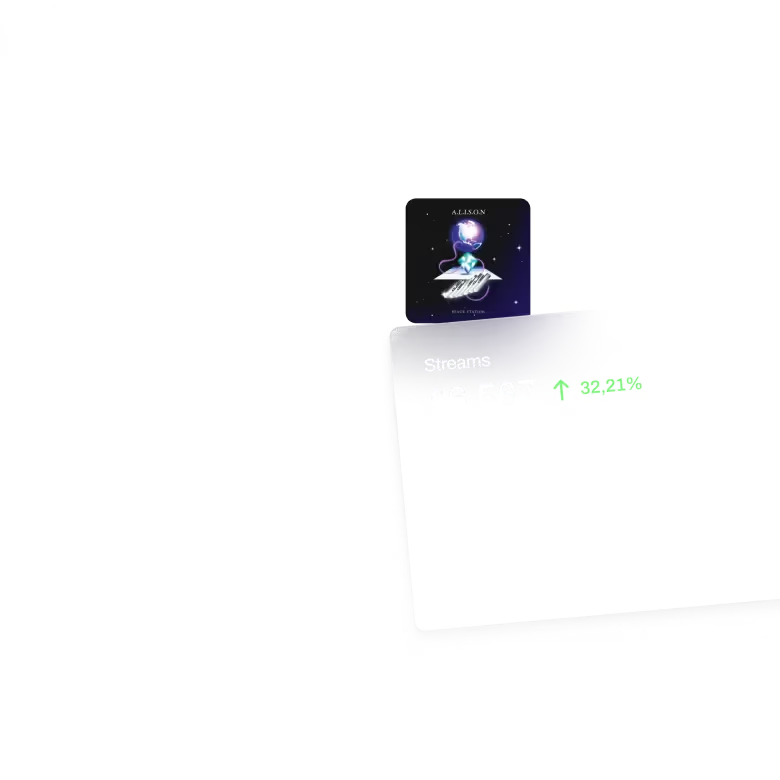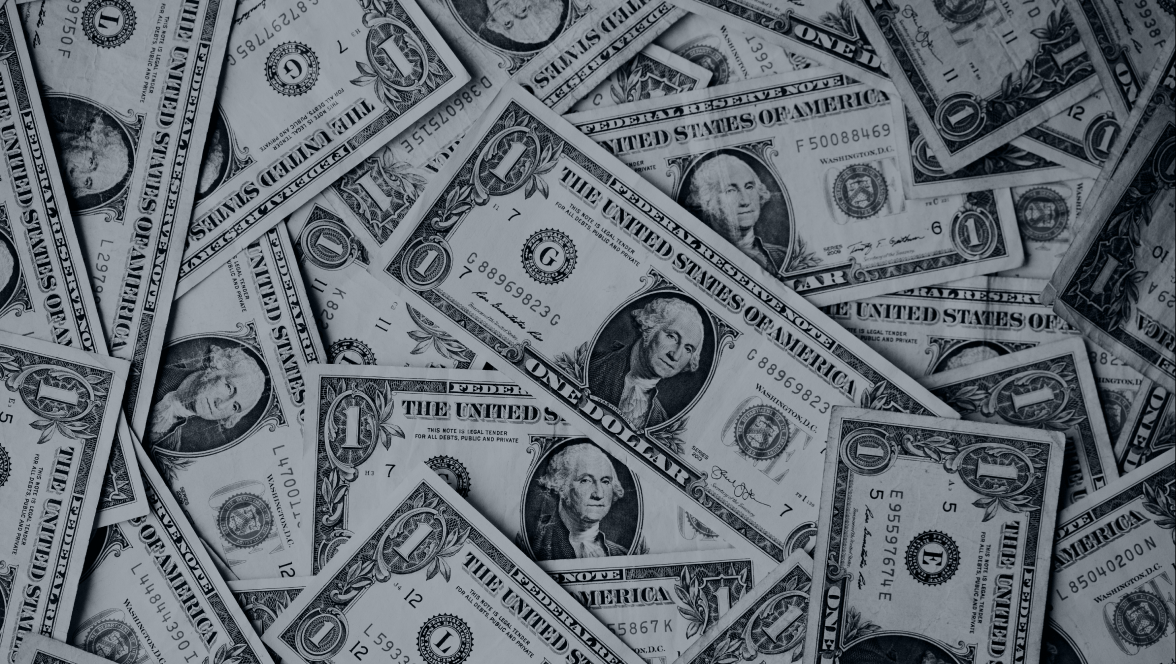
Record Label vs Distributor: which one is best for you?

What’s a record label? What’s a distributor? Does one exist without the other? Which one do you need as an artist?
The music industry is full of moving parts and if you’re new to making music (or even if you’ve been doing it for years and still don’t know all the lingo) it can be really confusing figuring out the best way to get your music out there and grow your career.
Thankfully, your friendly neighbourhood distributor is here to set the record straight and give you the lowdown on the label vs distributor debate.
The evolution of the music industry
Back in the pre-internet era, the consumption of music was very different to what it is now.
People listened to music via physical forms, like cassette, vinyl and (later on) CD, and discovered new music through the radio, live shows and (later on) television. The barrier to entry for musicians starting out or trying to remain independent was high – because artists needed a physical distributor for their music as well as connections with venues and broadcasters to get discovered.
Physical distribution, venues and broadcasters were largely controlled by the big labels – which meant that getting a record deal with one of those labels was the only way to ‘make it’ as an artist. With a record label behind you, your music was physically distributed and pushed to broadcast channels by the label moguls (many of whom no doubt owned shares in those media outlets to make even more money for themselves) – in exchange for ultimately having very little control over your music.
Now, the landscape looks very different.
The internet has changed the music industry dramatically, with 87.7% of UK music consumption now being via streaming services like Spotify, Apple Music, Amazon, Deezer etc.
Physical distribution (though potentially seeing a resurgence in recent months) isn’t quite obsolete – but it’s definitely not a focus for most musicians looking to build their music careers in 2024 onwards. While 5.9 million vinyl records were sold in 2023 (the highest figure since 1990), there were a staggering 179.6 billion streams of music in the same year.
With the advent of the internet came the rise of digital distribution of music, i.e. services/platforms (like ours) that act as the bridge between an artist’s music and the streaming platforms that listeners use to discover and consume music. With that shift, record labels have steadily lost their exclusive dominance in the music industry, because digital distribution has a much lower barrier to entry for both artists and distributors.
Distribution no longer exclusively means designing, manufacturing, shipping and retailing physical music and promotion no longer exclusively means getting your music played by radio broadcasters or securing gigs. Today, distribution is much more digital in nature – which means the only thing standing between an artist and their music being heard is a technology platform to bridge the gap.
Record labels still have a (large) part to play in the music industry, though. It’s estimated there are over 100,000 record labels worldwide, ranging from the biggest names in the industry to DIY/solo labels (some of whom are artists releasing music under their own label). The major labels are Universal Music Group, Sony Music Entertainment and Warner Music Group (and the numerous subsidiary labels that are part of those major labels) and, while estimates vary, it’s generally acknowledged that the Big Three major labels control around 85% of the global music industry.
What do record labels do?
If it’s simple enough to release music through a distribution platform without having a record deal in place, what’s the point of record labels in 2025 and beyond?
A record label’s role is multi-functional or ‘full-service’. Not only are they there to help distribute (digitally and physically) your music (either via their own technology or using an external distributor themselves), but their role is also to represent you, promote your music, and grow your music career alongside you.
Record labels, particularly the Big Three, have a huge amount of resources behind them – meaning they’re able to utilise their influence with broadcasters, streaming platforms, venues, retailers and more to get your music heard by the most people possible. They usually provide support in the creation of music (studio time, production expertise, access to songwriters and other collaborators), but most of their resources usually go towards promoting their artists’ music.
Record label deals, whether they’re with the Big Three or a small indie label, usually include a royalties or rights share agreement, where artists agree that the label is entitled to X% of their royalties or where X% ownership of their releases is assigned to the label.
As such, labels have a vested interest in the success of their artists. If a signed artist only earns $1,000 in a year and the label is entitled to 70% of that, the label earns just $700 from that artist. But if a label invests $10,000 in promoting, marketing and advertising that artist and they go on to earn $100,000 in a year, the label makes $60,000 in profit ($70,000 minus the promotional investment).
Record deals are a highly sought-after achievement for many artists, as they allow access to the upper echelons of the music industry and give them a huge amount of resources at their disposal – but record labels (like every business) ultimately exist to make money, which means their goal is always to get a return on their investment, i.e. to make more money from your music than they invest in it.
The problem with record labels…
For lots of artists, record label deals are mutually beneficial and both parties are happy with the arrangement they’ve come to. However, that’s not always the case. There have been numerous high-profile disputes between artists and labels over the years, including between Taylor Swift and her ex-label Big Machine Records.
Swift’s original record deal with Big Machine granted the label the rights to the masters of her first 6 studio albums, released between 2006 and 2017, as well as an estimated royalty split of 85-90% to Big Machine Records. In the run up to Swift’s contract with Big Machine Records expiring, she proposed that the masters for those albums be sold back to her – but Big Machine Records refused and ultimately her record deal expired, with masters still being owned by Big Machine Records.
As Swift was a songwriter on her tracks and therefore retained the publishing rights to her releases, she re-recorded and re-released the 6 albums as ‘Taylor’s Version’ replacements, giving her the masters ownership for the new versions of those albums. Swift signed a new record deal with Republic Records (part of Universal Music Group) that had much more favourable terms, including retaining both the publishing and masters rights for subsequent releases and a royalties split that’s speculated to grant more than 50% revenue to Swift.
With a huge worldwide fanbase, Swift’s label vs artist dispute made global headlines – but it’s not an uncommon situation in the music industry. Labels are business-focused and sign artists who they believe can be profitable for them, which often means taking rights, ownership and royalties revenue away from artists to increase the return on a label’s investment.
While advances, promotional support and the gravitas of signing a deal with a Big Three record label is appealing for many reasons, artists are at risk of losing their creative freedoms and sacrificing financial gain too if they agree to unfavourable terms.
Because of this, artists are increasingly looking to smaller independent labels for support, preferring to give up less of their creative autonomy even if it means having less investment and fewer resources behind them. The digital nature of today’s music industry and particularly the rise of virality on social media networks like TikTok mean that artists (both independent and signed to smaller labels) can achieve a huge amount of success without the backing of a major label.
What is a distributor?
A distributor is a company that distributes your music to the public. Distribution can cover physical (cassettes, vinyl, CDs) and digital (streaming platforms and digital downloads), but most distributors have a focus on one or the other.
Digital distribution, which is what we do at Identity Music and what most people now mean when they say ‘distribution’, is the process of uploading your music to streaming platforms and digital stores, like Spotify, Apple Music, Deezer, Amazon, etc. We distribute to over 70 global platforms here at Identity Music, so that your music can be accessed via your listeners’ preferred channels wherever they are around the world.
The Big Three record labels use their own distribution departments or subsidiaries (like INgrooves, owned by Universal, and The Orchard, owned by Sony Music) and have direct deals with streaming platforms to distribute their artists’ music.
But there are hundreds of digital music distributors out there who work directly with artists and smaller labels to get music onto digital platforms. Some distribution companies are primary technology companies, in that they provide the technology that connects an artist to the streaming and digital platforms and little else. Distributors like these tend to be open to anyone and operate a more DIY-level of distribution without any additional services like promotion, rights management or publishing.
Other distributors, like Identity Music, offer a more all-round service that somewhat bridges the gap between DIY distribution and record label deals. Distributors like this are often invite-only and/or selective about the artists they work with, simply because they offer a more hands-on service compared to the DIY distributors. At Identity Music, we offer digital distribution, rights management, music promotion and music publishing administration to our invite-only clients.
How much does it cost to distribute music?
The costs of distribution depend largely on the distributor you choose and their payment model.
Some distributors, particularly the more DIY platforms, charge a per-release fee to artists, where you pay a specific amount for each track or album you distribute with them. In these models, ‘extras’ like YouTube Content ID or distributing cover songs and/or remixes often incur additional charges on top of the fee you pay to distribute your music.
Others work on a subscription model, where you pay for monthly or annual access to their distribution services. One thing to be aware of here is what happens to your releases if you end your subscription – some platforms will take down your music if you stop paying, so make sure to check the terms of service and any other contractual agreements you sign when you join the service.
Other distributors, like Identity Music, work on a royalties-share basis, where you retain 100% of the ownership and rights to your music (unlike in a record deal situation) and split the revenue earned by your music with the distributor. These distributors decide what split to offer and can range anywhere from 10% to 50% of your royalties revenue.
Do I need a record label or a distributor?
If you’re an artist producing music, the choice of working with a record label or distributor is entirely yours.
Record labels, especially the Big Three, have the appeal of accessing monetary advances, production support and promotional support – but the record label might want ownership of your work or a larger share of your royalties than you’re comfortable giving up.
Smaller record labels are likely to offer more favourable deals to artists, where your rights and royalties are less at risk – but negotiating a deal that works for your goals might not always be possible.
Record labels, both small and large, have the appeal of giving you access to resources and expertise you might not otherwise be able to access. They’ll nurture you into a successful artis and help you build the foundations of your fanbase – but in exchange, they’ll likely take a decent chunk of your earnings and have creative control over your brand, music and image.
If you’d prefer to remain independent of record labels and be fully in control of your music career, you can work directly with a distributor to get your music live on streaming platforms and digital stores – just like a record label would do on your behalf if you signed a record deal.
There are pros and cons to each route, but if maintaining full creative control over your music and your career is important to you, working directly with a distributor might be the best option for you. You’ll need to be more hands-on and proactive when it comes to promoting your music and building a fanbase, but you’ll keep more of your earnings and be fully in charge of the direction your music takes.
If you’re on the lookout for a distributor who offers a simple, easy distribution platform and digital rights management, promotion and publishing at no extra cost, consider applying to work with us here at Identity Music. We work on a royalties-share basis and only work with artists we believe we can truly partner with so that we can maintain the highest level of client support possible.






